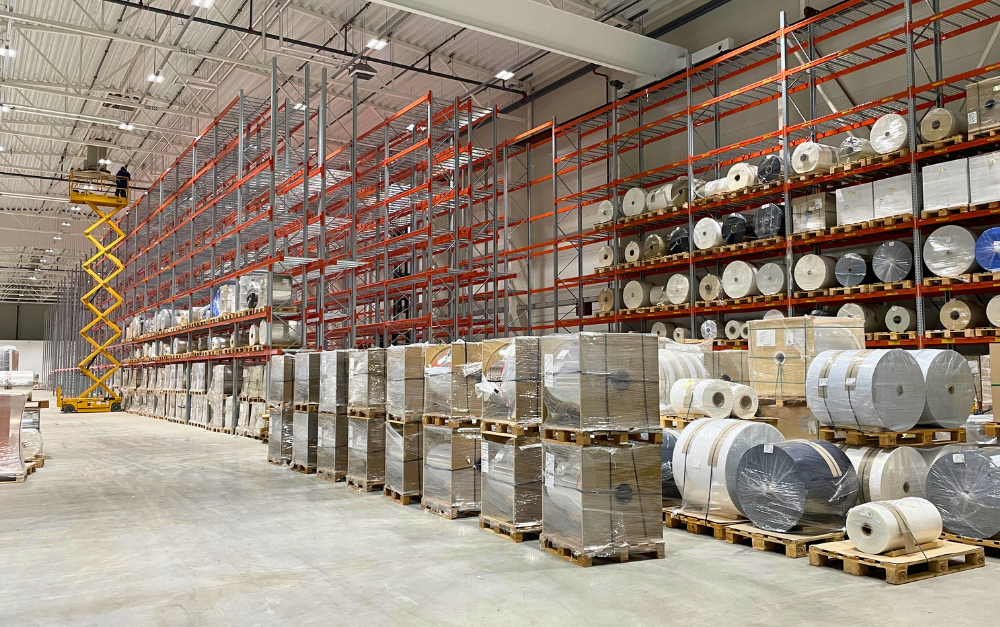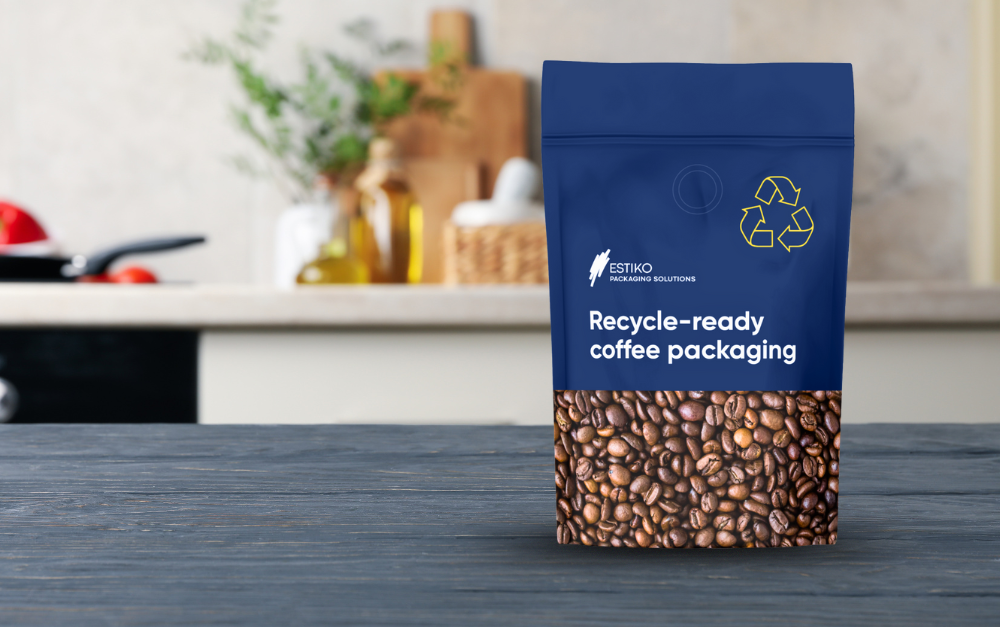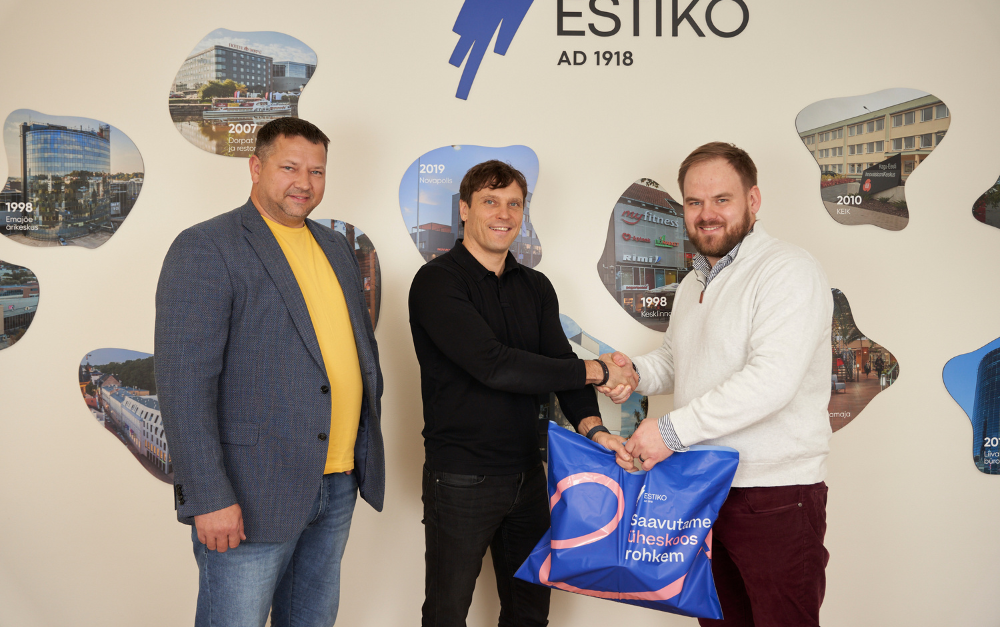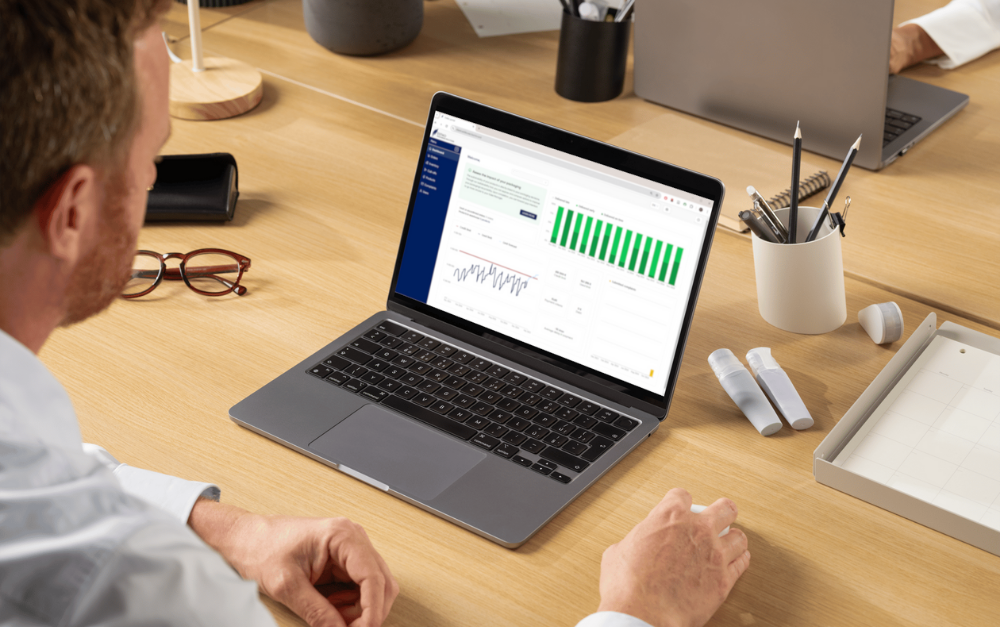The Minister and his advisor Risto Kaljurand were hosted by Kristo Seli, CEO of Estiko Group, Meelis Jürgens, CEO of Estiko-Plastar, and Ain Tammvere, CEO of Estiko Energia. During the visit, Seli gave an overview of the history of Estiko Group and the four main activities of the family business while Jürgens focused on the main challenges facing the packaging industry.
“The main challenge for Estiko as a packaging supplier in the coming years is to reduce its environmental impact. This means saving resources, reducing the use materials and reusing them, using renewable raw materials, alternatives and sharing knowledge,” explained Jürgens.
According to the decision of the European Commission, by 2030, the reusability or recyclability of all packaging on the European Union market must be ensured in a cost-effective manner. 68% of Estiko-Plastar’s packaging solutions, of which 75% is directed to food industry, are already recyclable.
Both parties stated that there is currently a well-functioning deposit packaging system for beverage bottles in Estonia. However, such solutions are missing for plastic packaging. According to the Minister, there should be a financial motivator and the system should be simple.
According to Jürgens, Estiko is currently testing a new Digimarc system, which should make the sorting of plastic packaging significantly easier and more automated in the future.
Ain Tammvere, CEO of Estiko Energia, gave the Minister an overview of the largest solar park in the Nordic and Baltic countries to be built in Raadi, Tartu and outlined the main observations of the energy company in the current Estonian energy policy.
“Estiko Group highly values green thinking and actions. We are constantly looking for new solutions and technologies to make our production processes more sustainable for the environment,” emphasised Tammvere, who said that Tartu could hold the title of hydrogen capital in 2030.
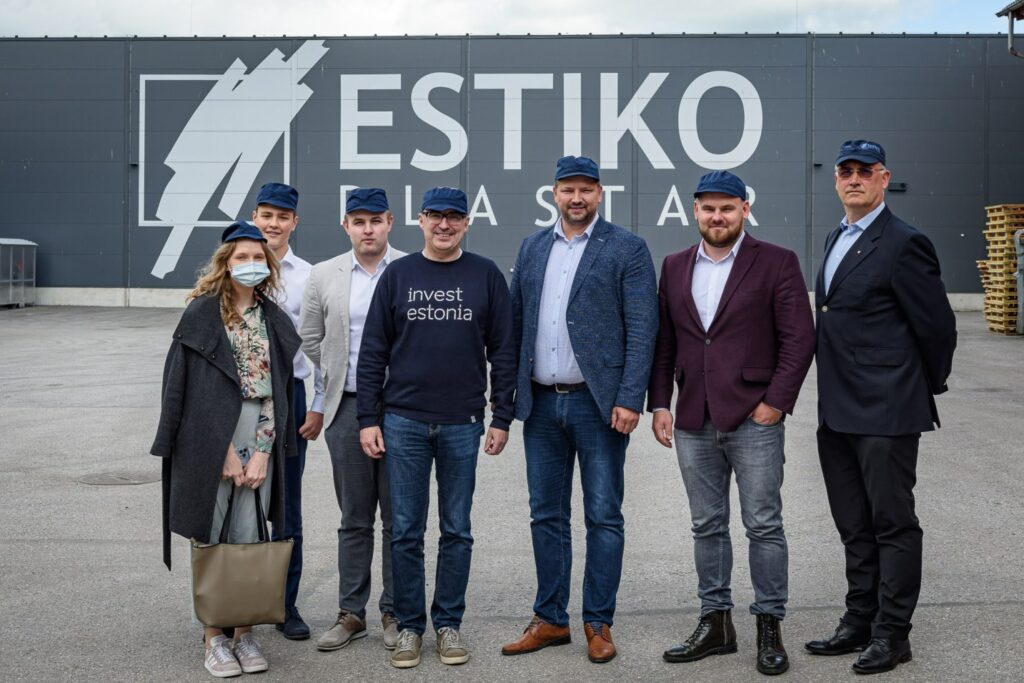
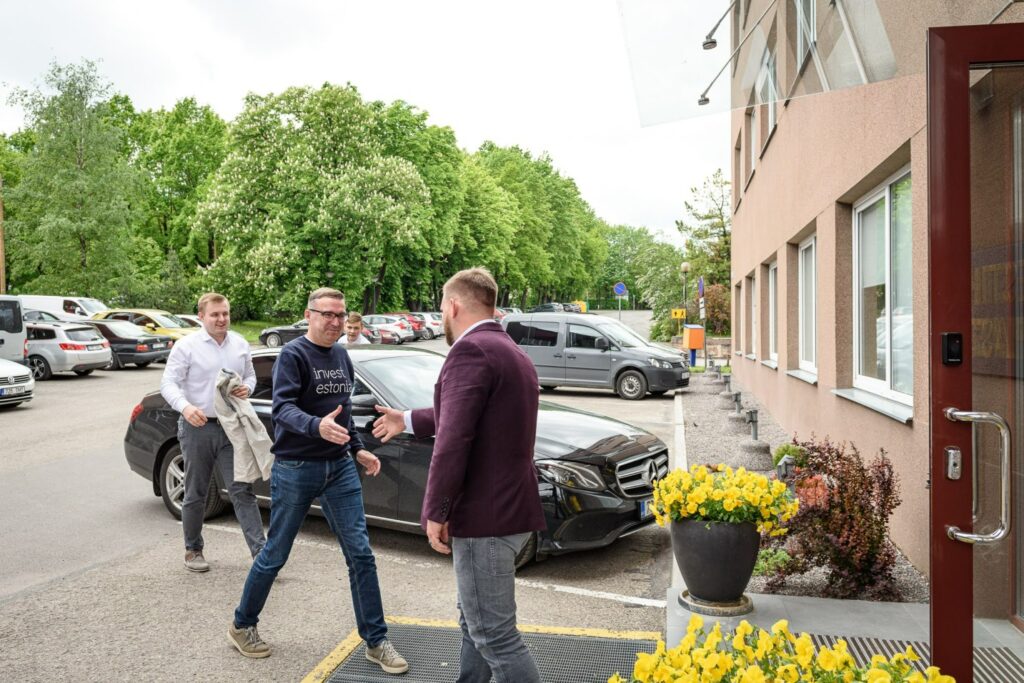
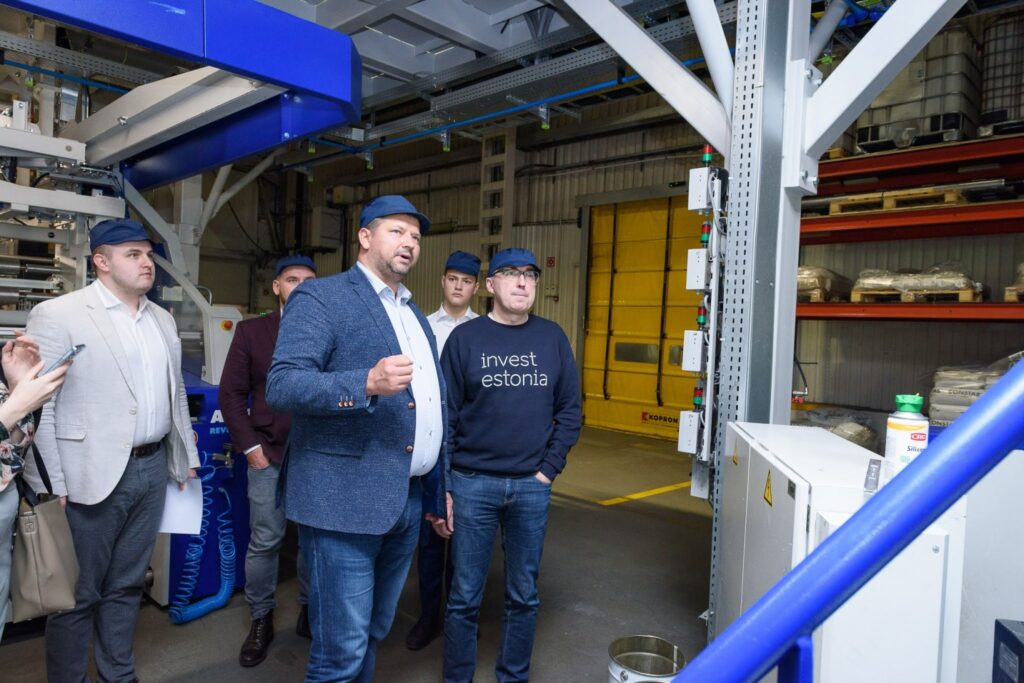
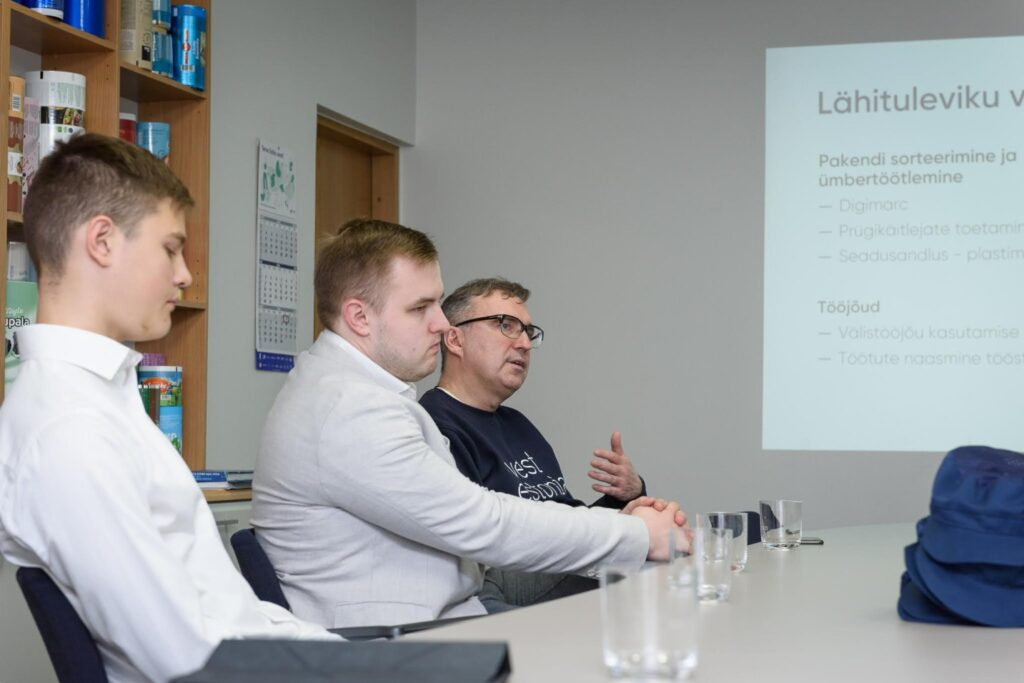
Photos: Aive Urberg
Text: Jaan Olmaru
